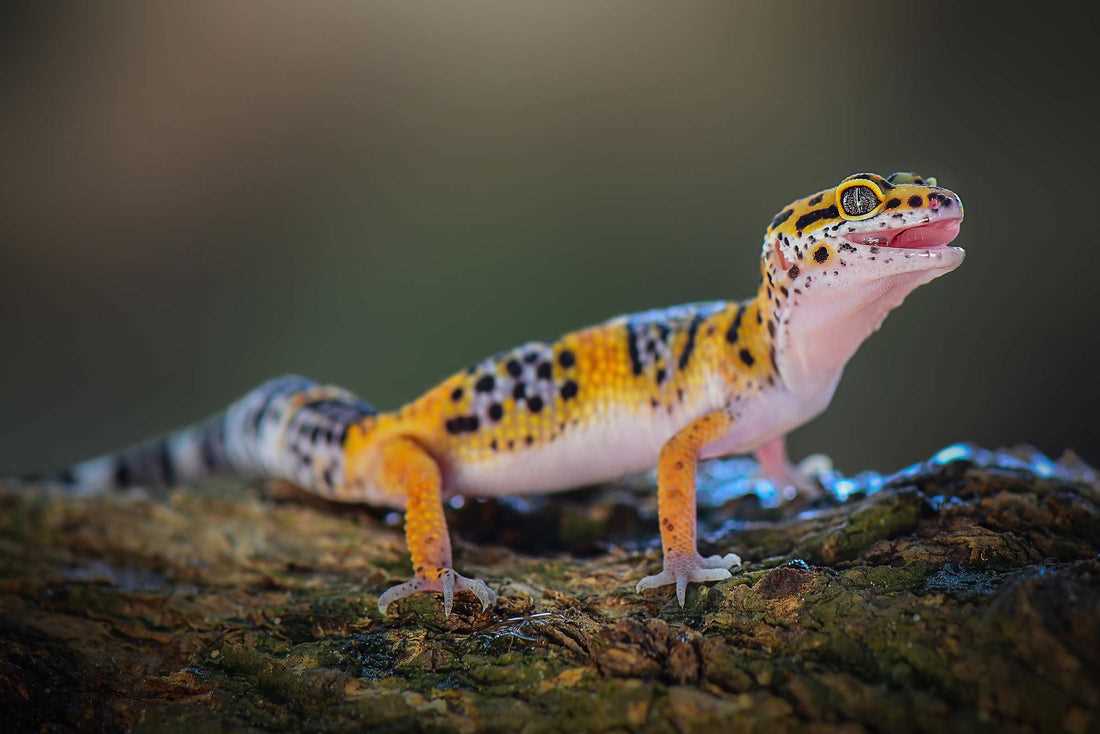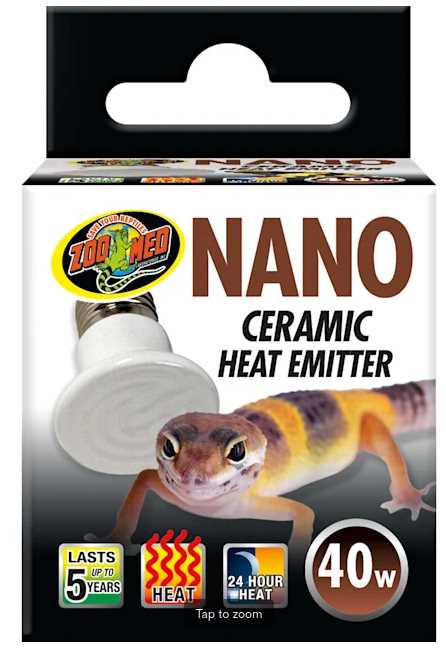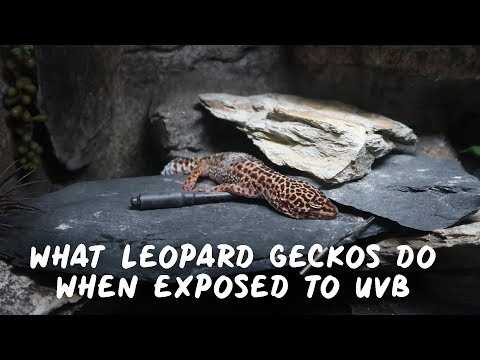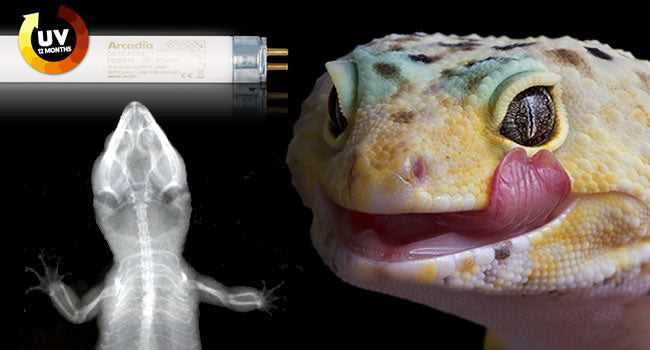Light plays a crucial role in the overall health and well-being of leopard geckos. These fascinating creatures are nocturnal, meaning they are most active during the night and sleep during the day. However, providing the right type of light, such as UVB light, can have numerous benefits for their care.
UVB light is essential for leopard geckos’ calcium metabolism and overall bone health. In the wild, they bask under the sun to absorb UVB rays, which help them produce vitamin D3. This vitamin, in turn, allows them to absorb and utilize calcium from their diet effectively. By providing UVB light in their captive environment, we can simulate this natural process and ensure that our leopard geckos have strong and healthy bones.
Using UVB light also helps regulate their internal clock and promotes natural behaviors. Leopard geckos have a circadian rhythm, which is influenced by light and darkness. By mimicking their natural day/night cycle with a proper lighting setup, we can help them maintain a regular sleep-wake cycle, reduce stress levels, and encourage natural behaviors such as feeding, exploring, and breeding.
Additionally, UVB light aids in the synthesis of essential vitamins and enhances the leopard geckos’ immune system. Exposure to UVB rays stimulates the production of vitamin D3, which is not only vital for calcium metabolism but also plays a critical role in their immune response. A strong immune system is crucial for combating diseases and infections, ensuring the overall health and longevity of our leopard geckos.
Essential UVB Lighting for Leopard Geckos
Leopard geckos are desert-dwelling reptiles that require appropriate levels of UVB light in order to thrive. In their natural habitat, they are exposed to sunlight, which provides them with the necessary UVB radiation. However, when kept as pets, it is crucial to provide them with an artificial UVB light source to replicate the conditions they would experience in the wild.
UVB light is essential for leopard geckos as it aids in the synthesis of vitamin D3. Vitamin D3 is crucial for the proper absorption and metabolism of calcium, a vital nutrient for their bone health. Without adequate levels of UVB light, leopard geckos can develop health issues such as metabolic bone disease (MBD), which can lead to deformities and even death.
UVB lighting should be provided for approximately 10-12 hours per day, simulating the natural daylight cycle. It is also important to keep in mind that UVB bulbs have a limited lifespan and should be replaced regularly to ensure they continue to emit the necessary UVB radiation.
The Importance of UVB Light for Leopard Gecko Health
UVB light plays a crucial role in the overall health and well-being of leopard geckos. As ectothermic reptiles, leopard geckos rely on external sources of heat and light to regulate their body temperature and metabolism. In their natural habitat, geckos bask in the sun, absorbing UVB rays, which are essential for their survival.
UVB light helps leopard geckos metabolize calcium, a vital mineral that is necessary for proper bone development and overall health. Without sufficient UVB exposure, leopard geckos may develop metabolic bone disease, a condition characterized by weakened bones, growth deformities, and other health issues.
Furthermore, UVB light stimulates the production of vitamin D3 in leopard geckos’ skin. Vitamin D3 is essential for the absorption and utilization of calcium in their bodies. It helps maintain healthy bones, teeth, and muscles, and also plays a role in their immune system function.
Leopard geckos that do not receive adequate UVB light may suffer from a range of health problems, including weakened immune systems, decreased appetite, lethargy, and reproductive issues. Additionally, a lack of UVB light can cause stress and negatively impact their overall behavioral well-being.
In order to ensure the health and longevity of leopard geckos in captivity, it is crucial to provide them with proper UVB lighting. This can be achieved through the use of specialized UVB bulbs that emit the appropriate wavelengths of light. It is also essential to correctly position the UVB light source within the gecko’s enclosure to ensure they receive the necessary exposure.
The Health Benefits of UVB Light for Leopard Geckos
UVB light plays a crucial role in the overall health and well-being of leopard geckos. These reptiles have specific lighting needs, and providing them with the right amount of UVB light can have numerous positive effects on their health.
Prevention of Metabolic Bone Disease:
One of the primary benefits of UVB light for leopard geckos is the prevention of metabolic bone disease (MBD). MBD is a common condition in reptiles characterized by weakened bones, muscle weakness, and even organ failure. The UVB light stimulates the production of vitamin D3 in the gecko’s skin, which is essential for calcium absorption. Adequate levels of calcium are necessary for the geckos to develop and maintain strong bones. With insufficient UVB light exposure, leopard geckos are at a higher risk of developing MBD.
Enhanced Calcium Absorption:
In addition to preventing MBD, UVB light also improves calcium absorption in leopard geckos. When the gecko is exposed to UVB light, it synthesizes vitamin D3, which helps regulate calcium metabolism. Calcium is vital for a gecko’s overall health, as it is required for muscle contraction, nerve function, and blood clotting. Without enough calcium, leopard geckos may suffer from muscle weakness, tremors, and even seizures. UVB light ensures that the geckos can absorb and utilize calcium efficiently.
Stimulation of Vitamin D Synthesis:
Vitamin D synthesis is another crucial benefit of UVB light for leopard geckos. Vitamin D plays a significant role in the gecko’s ability to metabolize calcium properly. Without vitamin D, leopard geckos can develop hypocalcemia, a condition characterized by low levels of calcium in the blood. UVB light triggers the production of vitamin D3, which promotes the absorption and utilization of calcium. This ensures that the geckos have adequate vitamin D levels to support their overall health.
Improved Behavioral Well-being:
UVB light not only impacts the gecko’s physical health but also contributes to their behavioral well-being. In the wild, leopard geckos spend their days basking in the sun, absorbing UVB light. By providing them with UVB lighting in captivity, you are replicating this natural behavior. This stimulation of their natural behavior can help prevent stress and promote a healthier, more active lifestyle for the geckos.
UVB Light and Calcium Absorption for Leopard Geckos

One of the crucial benefits of UVB light for leopard geckos is its role in calcium absorption. UVB light helps stimulate the production of vitamin D3 in the gecko’s skin, which is necessary for the absorption of calcium from their diet.
Leopard geckos require a certain amount of calcium in their diet to maintain strong bones, healthy muscle function, and other essential bodily processes. However, without sufficient vitamin D3, the gecko’s body cannot effectively absorb and utilize the calcium it consumes.
UVB light provides the necessary UV radiation that triggers the synthesis of vitamin D3 in the gecko’s skin. When the gecko basks under a UVB light source, it activates a process where a precursor molecule in the skin is converted to vitamin D3. Once synthesized, vitamin D3 is circulated through the gecko’s bloodstream.
Once vitamin D3 reaches the leopard gecko’s digestive system, it stimulates the absorption of dietary calcium. The vitamin D3 binds to a protein called calbindin in the intestinal cells, facilitating the transport of calcium across the intestinal wall and into the gecko’s bloodstream.
By ensuring adequate UVB light exposure for leopard geckos, owners can support proper calcium absorption and prevent the development of calcium-related disorders such as metabolic bone disease.
UVB Light for Gecko Vitamin D Synthesis
UVB light plays a crucial role in the synthesis of vitamin D in geckos. This essential vitamin is necessary for calcium absorption and overall health maintenance. Without adequate levels of vitamin D, leopard geckos can develop serious health problems and conditions.
When leopard geckos are exposed to UVB light, their skin absorbs the UVB rays, which then trigger the synthesis of vitamin D in their bodies. This process occurs naturally in the wild when geckos bask in the sun, but in captivity, it is essential to provide them with artificial UVB lighting to ensure their vitamin D needs are met.
The Importance of Vitamin D
Vitamin D is crucial for leopard geckos as it helps them absorb calcium from their diet. Calcium is vital for the development and maintenance of strong bones and proper muscle function. Without sufficient vitamin D, geckos can suffer from metabolic bone disease, a condition characterized by weak bones, deformities, and even paralysis.
UVB light allows leopard geckos to produce and process vitamin D, ensuring that they can absorb calcium effectively and prevent the development of bone-related issues. It is essential to provide them with the right UVB lighting setup to mimic natural sunlight, as this is the most reliable source of UVB radiation.
Providing Proper UVB Lighting

When setting up a leopard gecko enclosure, it’s crucial to include a suitable UVB light source. There are various UVB light options available, such as fluorescent bulbs or compact UVB bulbs. It’s essential to research and choose a reputable brand that emits the appropriate amount of UVB radiation for leopard geckos.
Conclusion

UVB light is crucial for leopard geckos’ overall health and well-being. It enables them to synthesize vitamin D, which is essential for calcium absorption and the prevention of metabolic bone disease. By providing artificial UVB lighting in their enclosures, gecko owners can ensure that their pets receive the necessary UVB radiation to maintain optimal health.
UVB Light and Behavioral Well-being
UVB light plays a crucial role in the behavioral well-being of leopard geckos. In their natural habitat, these geckos are exposed to sunlight, which provides them with the necessary UVB radiation.
Exposure to UVB light helps regulate the geckos’ internal clock and circadian rhythm. This is essential for their overall health and behavior. Leopard geckos require a proper day-night cycle to maintain a regular sleep schedule and engage in natural behaviors, such as hunting, exploring, and basking.
Without adequate UVB light, leopard geckos may experience disruptions in their sleep patterns and become stressed. This can lead to behavioral problems such as decreased appetite, lethargy, aggression, and depression.
By providing leopard geckos with UVB light, owners can help ensure their pets’ behavioral well-being. Proper lighting setups mimic their natural environment and offer the UVB radiation necessary for their physiological and psychological needs.
The Role of UVB Light in Reproductive Success for Leopard Geckos

UVB light plays a crucial role in the reproductive success of leopard geckos. These fascinating creatures have unique breeding habits that are heavily influenced by the availability of UVB light.
Leopard geckos require UVB light for proper hormone production and reproductive function. Without adequate UVB exposure, female leopard geckos may experience difficulty in producing and laying eggs. UVB light stimulates the production of essential hormones, such as progesterone and estrogen, which are necessary for successful ovulation and egg development.
Additionally, UVB light helps regulate the geckos’ circadian rhythm, which is closely tied to their reproductive cycle. Exposure to UVB light during the day helps maintain a regular breeding schedule and increases the chances of successful mating and egg fertilization.
Furthermore, UVB light has been found to enhance the overall health and vitality of leopard geckos, which directly affects their ability to reproduce. Geckos that receive sufficient UVB light exhibit stronger immune systems and higher energy levels, leading to improved reproductive performance.

I’m Lena Adams—a product of an unconventional upbringing in the African wilderness. My father, a daring explorer of African wildlife, sparked my fascination with reptiles, a passion that intertwined with the tragic loss of my mother during an expedition, leaving an indelible mark on my life. Driven to understand the creatures that captivated my parents, I embarked on my journey, sharing insights about reptiles, frogs, and lizards on my website. Through my explorations and conservation efforts, I honour my family’s legacy while seeking connections—to the creatures, nature, and the mother whose presence I yearn to understand.
